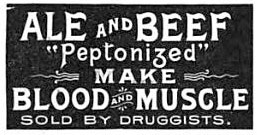In the Archives: Forgotten Phones
Editor’s note: Owners of new phones nowadays are as likely to think about the first photograph they’ll take with it as they are to contemplate the first words they’ll say into it. But Laura Bien’s local history column this week serves as a reminder that sometimes first words spoken into a phone get remembered in the historical archives. Given what she’s unearthed from the archives this time, it’s not clear why Chicago is known as the “city of broad shoulders” instead of the “city of big-footed girls.”
Quiz a friend or two about who popularized the type of electricity we use today – go ahead, get your geek on – and a few would correctly name Nikola Tesla. Then ask who invented long-distance telephony.
Probably no one would answer correctly.
It wasn’t Alexander Graham Bell, Thomas Edison, or any other celebrated name from the late 19th century’s feverish and fertile age of invention.
Like his renowned contemporary, Tesla, the inventor of long-distance telephony was an electrical engineer. Unlike Tesla’s numerous, sophisticated, and lasting inventions, his were few, crude, and transient.
But they worked – and brought him temporary fame.
Just as Tesla’s brilliance and legacy weren’t fully appreciated until long after his death, so too should be remembered the legacy of his humbler brother inventor whose name once graced the New York Times: Ypsilanti engineer Webster Gillett. [Full Story]




